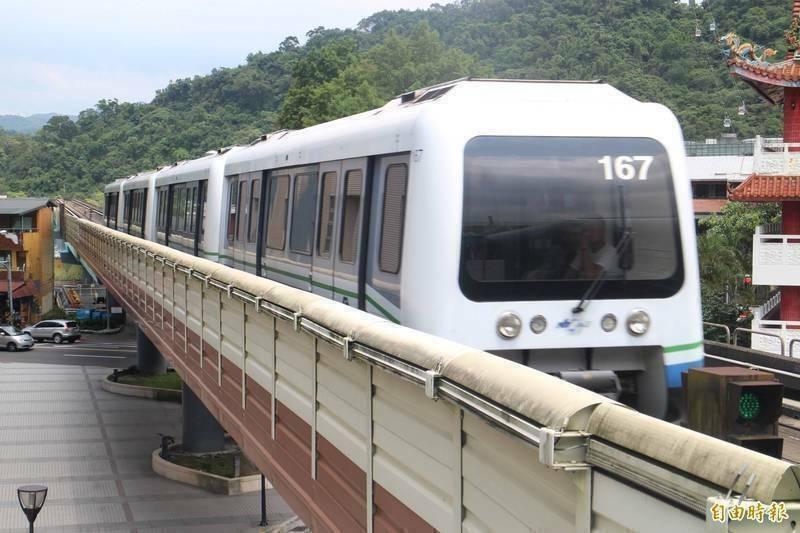Discounted 72-hour Taipei Metro passes are to be offered to China Airlines passengers until Feb. 28 next year, the airline announced today.
China Airlines passengers may present their boarding pass for a discount of up to 34 percent when buying a Taipei Metro 72-hour unlimited travel pass.
The offer is available to international travelers on international flights bound for Taipei.

Photo: Taipei Times
Within seven days of arrival, travelers can present their boarding pass, passport and proof of flight payment at an EZfly counter in Taiwan Taoyuan International Airport or Taoyuan MRT Taipei Main Station to obtain the discounted passes, the airline said.
One 72-hour pass usually retails for NT$380.
Until Sept. 30, China Airlines passengers would receive a 34 percent discount to purchase a pass for NT$250.
From Oct. 1 to Feb. 28, passengers could purchase the pass for NT$320.
The scheme hopes to attract more tourists to explore Taipei attractions such as Taipei 101, Longshan Temple, Chiang Kai-shek Memorial Hall, Ximending (西門町) and Tamsui (淡水), the airline said.
The 72-hour unlimited travel pass also allows discounted entrance to the Maokong Gondola, Taipei Children’s Amusement Park, National Palace Museum, National Taiwan Museum, Red House and the Miniatures Museum of Taiwan.
The Metro Shop, Beitou Resort Metro Inn and other well-known businesses along the Taipei Metro system also offer rewards and special discounts to pass holders.

An undersea cable to Penghu County has been severed, the Ministry of Digital Affairs said today, with a Chinese-funded ship suspected of being responsible. It comes just a month after a Chinese ship was suspected of severing an undersea cable north of Keelung Harbor. The National Communications and Cyber Security Center received a report at 3:03am today from Chunghwa Telecom that the No. 3 cable from Taiwan to Penghu was severed 14.7km off the coast of Tainan, the Ministry of Digital Affairs said. The Coast Guard Administration (CGA) upon receiving a report from Chunghwa Telecom began to monitor the Togolese-flagged Hong Tai (宏泰)

A cat named Mikan (蜜柑) has brought in revenue of more than NT$10 million (US$305,390) for the Kaohsiung MRT last year. Mikan, born on April 4, 2020, was a stray cat before being adopted by personnel of Kaohsiung MRT’s Ciaotou Sugar Refinery Station. Mikan was named after a Japanese term for mandarin orange due to his color and because he looks like an orange when curled up. He was named “station master” of Ciaotou Sugar Refinery Station in September 2020, and has since become famous. With Kaohsiung MRT’s branding, along with the release of a set of cultural and creative products, station master Mikan

RISING TOURISM: A survey showed that tourist visits increased by 35 percent last year, while newly created attractions contributed almost half of the growth Changhua County’s Lukang Old Street (鹿港老街) and its surrounding historical area clinched first place among Taiwan’s most successful tourist attractions last year, while no location in eastern Taiwan achieved a spot in the top 20 list, the Tourism Administration said. The listing was created by the Tourism Administration’s Forward-looking Tourism Policy Research office. Last year, the Lukang Old Street and its surrounding area had 17.3 million visitors, more than the 16 million visitors for the Wenhua Road Night Market (文化路夜市) in Chiayi City and 14.5 million visitors at Tainan’s Anping (安平) historical area, it said. The Taipei 101 skyscraper and its environs —

Taiwan on Friday said a New Zealand hamburger restaurant has apologized for a racist remark to a Taiwanese customer after reports that it had first apologized to China sparked outrage in Taiwan. An image posted on Threads by a Taiwanese who ate at Fergburger in Queenstown showed that their receipt dated Sunday last week included the words “Ching Chang,” a racial slur. The Chinese Consulate-General in Christchurch in a statement on Thursday said it had received and accepted an apology from the restaurant over the incident. The comment triggered an online furor among Taiwanese who saw it as an insult to the